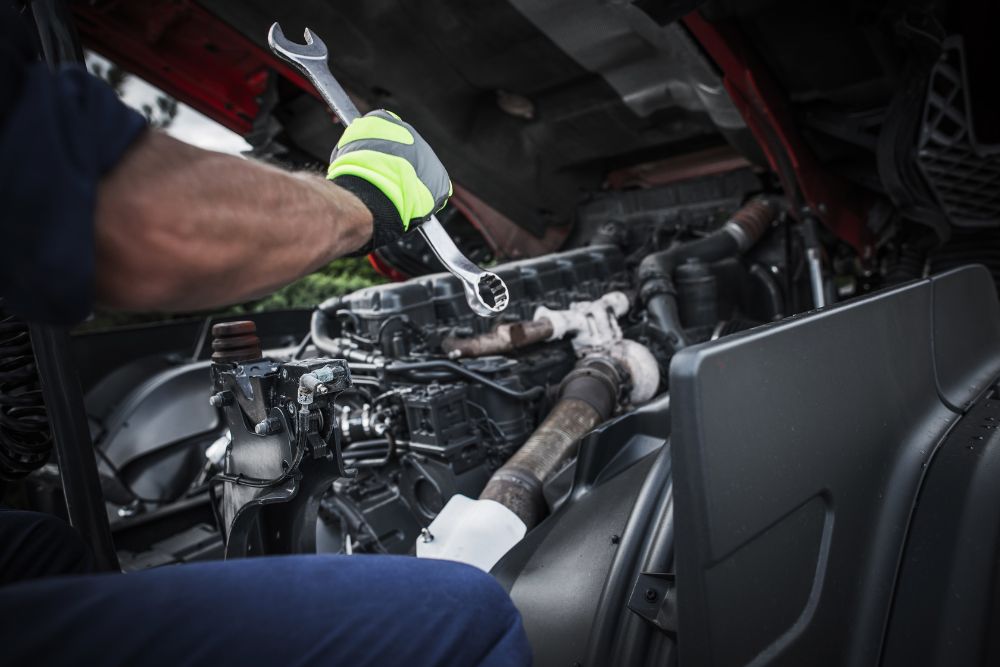In the car hauling business, success is not just about getting from point A to point B. It’s about ensuring that every vehicle is transported safely and efficiently, with minimal downtime and maximum reliability. One of the most critical components of achieving this is implementing a robust preventive maintenance program for your car hauling equipment. Regular maintenance not only prolongs the life of your vehicles but also ensures safety, reduces operational costs, and improves overall service quality. In this blog post, we’ll delve into the essential preventive maintenance practices every car hauler should follow.
1. Conduct Daily Inspections
Daily inspections are vital to identify and address minor issues before they escalate into major problems. Before embarking on any trip, perform a thorough check of your truck and trailer, focusing on these key areas:
- Tires: Check for proper inflation, tread wear, and any signs of damage or punctures. Ensure that all tires are in good condition to prevent blowouts on the road.
- Brakes: Inspect brake pads, discs, and fluid levels. Functioning brakes are crucial for the safety of your cargo and other road users.
- Lights and Signals: Ensure all lights and indicators are working correctly, including headlights, brake lights, and turn signals.
- Fluid Levels: Check oil, coolant, transmission fluid, and windshield washer fluid. Maintaining proper fluid levels is essential for the smooth operation of your vehicle.
- Belts and Hoses: Look for any signs of wear, cracks, or leaks in belts and hoses. Replacing them before they fail can prevent breakdowns and costly repairs.
2. Schedule Regular Maintenance Checks
In addition to daily inspections, schedule regular maintenance checks based on the manufacturer’s recommendations and your vehicle’s usage. Key maintenance tasks should include:
- Oil Changes: Regular oil changes are essential to keep your engine running smoothly and to prevent overheating and wear.
- Brake Maintenance: Regularly inspect and replace brake pads and discs as needed. Brake fluid should also be flushed and replaced periodically.
- Transmission Service: Regular transmission checks and fluid changes are crucial for maintaining smooth gear shifts and preventing transmission failure.
- Suspension and Alignment: Ensure your suspension system and wheel alignment are in good condition to avoid uneven tire wear and improve handling.
- Battery Checks: Test your battery’s charge and inspect for corrosion or loose connections. Replace the battery if it shows signs of weakness.
3. Keep Your Trailer in Top Shape
Your trailer is just as important as your truck when it comes to car hauling. Regular trailer maintenance includes:
- Inspecting the Hitch and Coupling: Ensure the hitch is securely attached and the coupling mechanism is functioning correctly.
- Checking the Trailer’s Suspension: Look for signs of wear or damage in the suspension system. Replace worn-out components to maintain a smooth ride.
- Maintaining the Trailer’s Brakes: Just like your truck, your trailer’s brakes need regular inspections and maintenance.
- Ensuring Proper Load Securement: Regularly check and replace any worn or damaged tie-down straps or chains to keep your cargo secure during transit.
4. Implement a Maintenance Schedule
Develop a detailed maintenance schedule and stick to it. This schedule should include:
- Daily Inspections: Conducted before every trip.
- Weekly Checks: More in-depth inspections of critical components.
- Monthly Maintenance: Comprehensive checks and servicing based on usage.
- Seasonal Adjustments: Prepare your equipment for seasonal changes, such as winterizing your vehicle before cold weather sets in.
5. Train Your Team
Ensure that all drivers and maintenance staff are trained in preventive maintenance practices. Regular training sessions can help your team recognize potential issues early and understand the importance of maintenance for safety and efficiency.
Preventive maintenance is the backbone of a successful car hauling operation. By conducting regular inspections, scheduling maintenance checks, keeping your trailer in top shape, and implementing a strict maintenance schedule, you can ensure that your equipment remains reliable and safe. This not only enhances the longevity of your vehicles but also provides peace of mind to your clients, knowing that their vehicles are in good hands. Invest in preventive maintenance today to reap the benefits of a smooth-running, cost-effective car hauling business.











